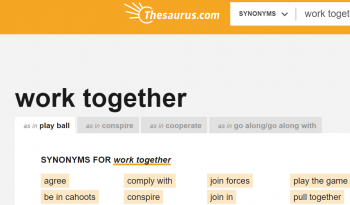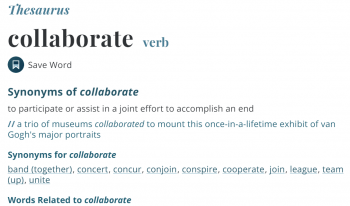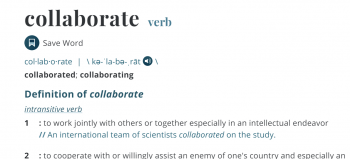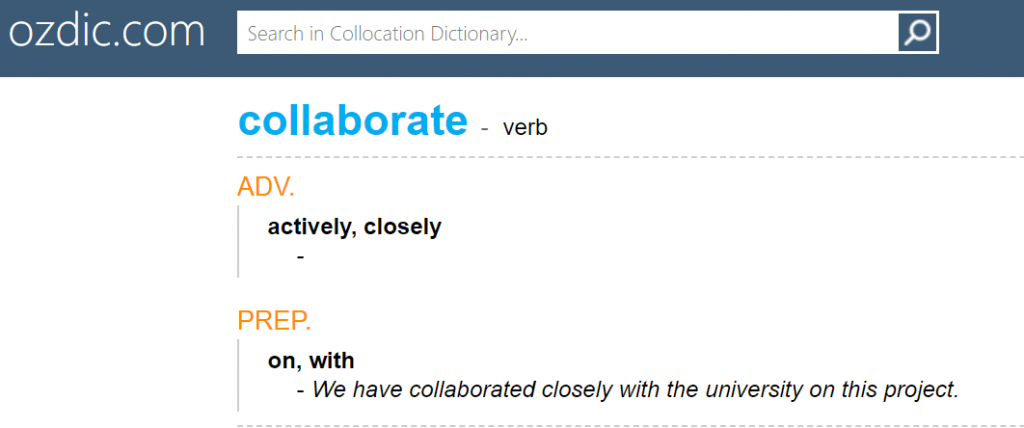Often, language learners develop systems for finding new words that may not be the most efficient or the most effective when writing and speaking at an advanced level. At this level, it is important to find the best word for the intended meaning. Of course, these words become difficult to locate when this moment comes!
To overcome this challenge, I recommend the use of a series of three tools to find words that match the intended meaning: Thesaurus.com, Merriam-Webster’s Online Dictionary & Thesaurus, and Ozdic.com. These tools are explained in detail below with the example of “work together.”

To verify that this word will express the intended meaning, we will search its definition in a dictionary, like the Merriam-Webster Online Dictionary. (If we want, we can also hear how it is pronounced using tools on the Merriam-Webster webpage.)
Here, we see that “collaborate” has the intended meaning of “working with others” and this definition adds that “collaboration” is usually an “academic endeavor,” matching our meaning exactly!

To include this word in our sentence correctly, we now visit Ozdic.com. This tool uses frequency data from language used to see what words most often come together and, consequently, belong together.
Ozdic.com offers adjectives, adverbs, and prepositions that frequently come with verbs like “collaborate.” If we wanted to say that our team worked together frequently and well, then we might want to add “closely” to our description, for example.
Here, we can also see which prepositions often come with this verb and use these common prepositions to express our meaning.
In the end, instead of saying “Jim and I worked together to make this academic presentation,” we would say: “Jim and I collaborated on this academic presentation.”
First, we have the phrase “work together” that we want to replace with a different word. Consequently, we begin by searching “work together” on Thesaurus.com.
Here we are given a set of words that “work together” may mean directly under the words (e.g., play ball, conspire, cooperate, etc.). We select “cooperate” as it is closest to our intended meaning.
On this list, we see “collaborate,” “agree,” and many other options. We select “collaborate” as a good candidate for our word, but now we must check that it is our best option.


To be certain that there is not a better word for our meaning, we then look up similar words to our new word “collaborate.” We do this with another thesaurus, the Merriam-Webster Online Thesaurus.
For this example, we do not find a better word. However, if we did find a word to consider, we would return to the dictionary to verify its meaning before moving on to the next step.
